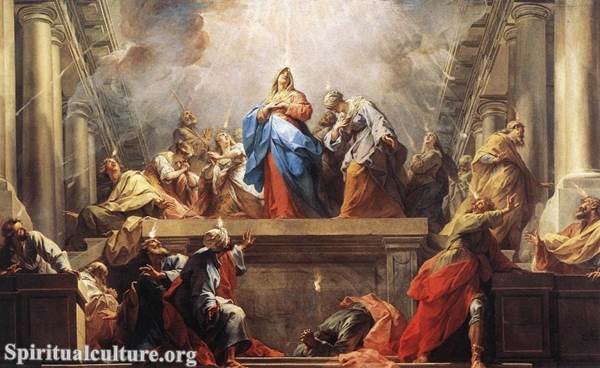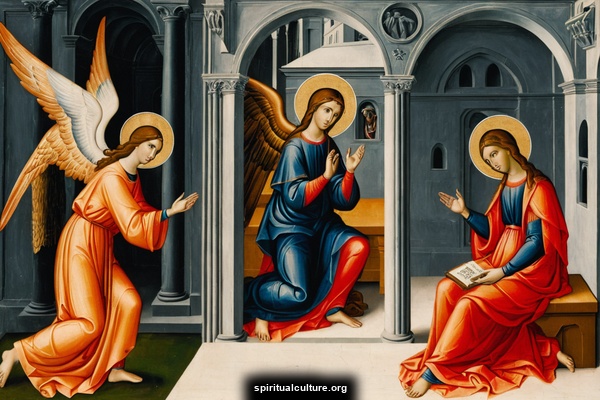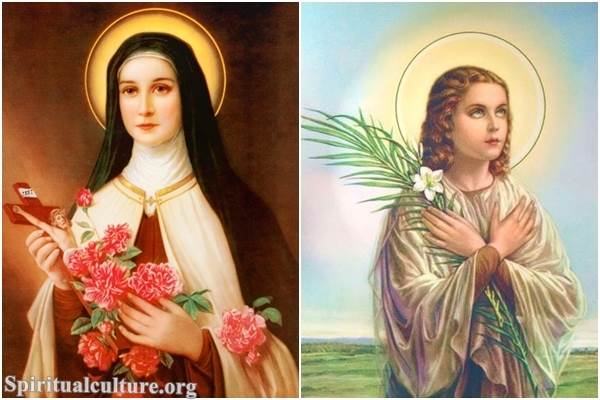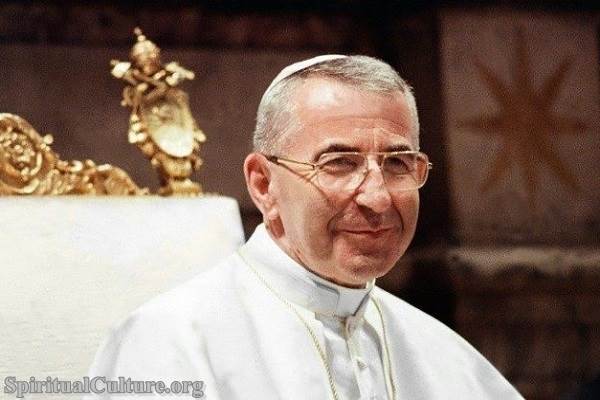Born in 1920 and passing away in 2005, Pope John Paul II remains one of the most influential and beloved figures in modern Church history. His life was marked by deep personal suffering, unwavering faith, and a global mission to proclaim the dignity of the human person in Christ. From his humble beginnings in Poland to his historic pontificate at the Vatican, this pope redefined spiritual leadership for a new era.

Pope John Paul II (1920-2005)
In this article, Spiritual Culture explores the biography of Pope John Paul II, his journey to the papacy, and his enduring impact on both the Roman Catholic Church and the world.
I. Early Life and Background
Birth and Family Roots
Pope John Paul II was born as Karol Józef Wojtyła on May 18, 1920, in the small town of Wadowice, located in southern Poland. His father was a retired army officer, and his mother passed away when Karol was only eight years old. His older brother, a doctor, died when Karol was twelve. These early losses shaped him into a young man of profound emotional depth and spiritual maturity.
Growing up in a devout Catholic environment, Karol’s early experiences were shaped by faith, family hardship, and a deep love for Polish culture. The influence of Marian devotion and Eucharistic spirituality became central to his character and future ministry.
Education and Call to Priesthood
Karol was an outstanding student. He studied literature, languages, and theater at Jagiellonian University in Kraków. However, his academic pursuits were cut short when Nazi Germany invaded Poland in 1939. During the occupation, Karol worked in a quarry and later a chemical plant to avoid deportation.
In secret, he began studying for the priesthood in an underground seminary operated by the Archbishop of Kraków. He was ordained a priest in 1946 and sent to Rome for further studies. There, he earned a doctorate in theology with a focus on the mystical theology of St. John of the Cross.
Rise in the Church Hierarchy
Returning to Poland, Father Wojtyła served in various pastoral and academic roles. He became known for his philosophical insight and ability to connect with young people. In 1958, at just 38 years old, he was appointed Auxiliary Bishop of Kraków. By 1964, he became the Archbishop, and in 1967, he was made a cardinal by Pope Paul VI.
Cardinal Wojtyła played a significant role in the Second Vatican Council, especially in matters concerning religious freedom, the laity, and human dignity. His theological background and pastoral heart made him a rising figure in the global Church.
II. Election as Pope: A Historical Turning Point
The 1978 Conclave
After the sudden death of Pope John Paul I in 1978, the College of Cardinals gathered once more to elect a new successor of Peter. On October 16, 1978, Karol Wojtyła was elected as the 264th pope of the Roman Catholic Church.
At just 58 years old, he became the first non-Italian pope in 455 years and the first-ever Slavic pope. The world was astonished. A Polish pope had emerged from behind the Iron Curtain—an unmistakable sign of divine providence in a time of global tension.
Choosing the Name “John Paul II”
By choosing the name John Paul II, he honored his predecessor and signaled continuity with the reforming and pastoral spirit of Pope John XXIII and Pope Paul VI. His papal motto, Totus Tuus (“Totally Yours”), reflected his deep devotion to the Virgin Mary and complete trust in God’s will.
III. Role and Impact as Supreme Pontiff
A Pope of Dialogue and Reconciliation
One of Pope John Paul II’s greatest legacies is his commitment to interfaith and ecumenical dialogue. He was the first pope to enter a synagogue and a mosque. He visited the Wailing Wall in Jerusalem, acknowledging the deep connection between Christianity and Judaism.
His tireless efforts to mend divisions between Catholics and Orthodox Christians led to a thaw in centuries-old tensions. Though full communion has not yet been restored, John Paul II opened the doors of respect, brotherhood, and mutual understanding.
Confronting Communism and Advocating for Freedom
Perhaps no pope has had as profound a political impact as John Paul II. His return to Poland in 1979 galvanized the Solidarity movement, encouraging nonviolent resistance to Communist oppression.
Historians and world leaders—including Ronald Reagan, Margaret Thatcher, and Lech Wałęsa—acknowledge that the fall of the Berlin Wall and the collapse of Soviet-style Communism were, in part, catalyzed by his spiritual leadership and unflinching moral voice.
Upholding Catholic Doctrine
Pope John Paul II defended traditional Catholic teachings on life, sexuality, marriage, and the family. In a rapidly changing moral landscape, he held firm to the Church’s timeless teachings, even when unpopular.
He issued encyclicals such as:
- Evangelium Vitae (The Gospel of Life) – affirming the sacredness of life from conception to natural death.
- Veritatis Splendor – emphasizing the importance of moral truth in the face of relativism.
- Fides et Ratio – exploring the harmony between faith and reason.
These writings helped clarify Catholic theology for the modern world and continue to influence seminarians, clergy, and theologians worldwide.
A Pope for the Nations
John Paul II was known as the “Pilgrim Pope.” He made 104 international apostolic journeys, visiting 129 countries. No other pope in history had traveled so extensively. His visits brought hope to persecuted Christians, encouragement to poor nations, and visibility to marginalized people.
Wherever he went, he proclaimed the Gospel boldly, calling all people—young and old—to rediscover the joy of knowing Jesus Christ.
Champion of the Youth
In 1985, he established World Youth Day, a global event that continues to inspire millions of young Catholics. His love for youth was sincere and passionate. He encouraged them not to settle for mediocrity but to become “saints of the new millennium.”
His famous phrase, “Do not be afraid. Open wide the doors to Christ,” became a rallying cry for a generation.
IV. Defining Events of His Papacy
The 1981 Assassination Attempt
On May 13, 1981, while greeting pilgrims in St. Peter’s Square, Pope John Paul II was shot four times by Turkish gunman Mehmet Ali Ağca. Miraculously, he survived. He credited the Virgin Mary with saving his life, noting that the bullet missed a vital artery by millimeters.
In a remarkable display of Christian mercy, John Paul II visited Ağca in prison and personally forgave him. This act of forgiveness became a symbol of his deep spirituality and the Gospel’s call to love even one’s enemies.
Jubilee Year 2000
To mark the new millennium, Pope John Paul II declared the Great Jubilee of the Year 2000, urging the Church and the world to return to Christ.
During the jubilee, he:
- Formally asked forgiveness for the sins committed by Christians throughout history
- Encouraged unity among Christian denominations
- Reaffirmed the centrality of Jesus as the only Savior of the world
It was one of the most spiritually significant moments of his pontificate.
Philosophical Contributions
Before his election, Cardinal Wojtyła was already a respected scholar of personalism, a philosophical movement emphasizing the dignity of the human person. His book Love and Responsibility and later Theology of the Body offered profound insights into human sexuality, marriage, and the vocation of the body.
His contributions continue to shape Catholic teaching on moral theology, especially in understanding the human person in relation to God.
V. Final Years and Death
Physical Decline
During the 1990s, Pope John Paul II was diagnosed with Parkinson’s disease. Despite increasing frailty, he continued to serve, preach, and travel. His suffering became a visible witness to the redemptive value of illness offered to God.
As he grew physically weaker, many were deeply moved by his courage. He chose not to hide his suffering but embraced it with dignity and trust in Christ.
Death and Funeral
Pope John Paul II died on April 2, 2005, at the age of 84. His death was mourned by the world. Millions attended his funeral in person and through global broadcasts. The crowd in St. Peter’s Square chanted “Santo Subito” (Make him a saint now!), expressing the global conviction of his sanctity.
VI. Beatification and Canonization
Beatification
Under Pope Benedict XVI, John Paul II was beatified on May 1, 2011, following the recognition of a miraculous healing attributed to his intercession.
Canonization
On April 27, 2014, Pope Francis canonized him as Saint John Paul II, alongside Pope John XXIII. The event was historic, uniting faithful from across the world in gratitude for a life of holiness and heroic virtue.
Legacy of Sainthood
As Saint John Paul II, he is now venerated as a model of Christian courage, intellectual brilliance, pastoral compassion, and unwavering devotion to Christ and the Church.
His feast day is celebrated on October 22, commemorating the day of his papal inauguration.
VII. The Enduring Legacy of Pope John Paul II
Within the Catholic Church
Pope John Paul II reshaped the modern papacy. He reminded the world that the pope is a universal shepherd, a witness to truth, and a servant of all. His leadership inspired thousands of priestly and religious vocations, deepened Eucharistic devotion, and strengthened global Catholic identity.
He also appointed the majority of cardinals who would elect his successor, shaping the Church’s direction into the 21st century.
In the World
Pope John Paul II’s influence transcended religion. He was a global moral voice, speaking out for human rights, peace, economic justice, and the dignity of every person—from the unborn to the aged, from prisoners to refugees.
He met with world leaders, addressed the United Nations, and pleaded for peace in places like Iraq, the Balkans, and Rwanda.
For the Youth and the Future
John Paul II’s messages to youth continue to echo: “You are not the sum of your weaknesses and failures; you are the sum of the Father’s love for you.”
He believed deeply in the call to holiness for all, not just priests or nuns, but every layperson, every family, every student, every worker.
Through his writings, travels, and example, Pope John Paul II paved a path of radical discipleship, compassion, and truth.
Conclusion
The life of Pope John Paul II was a gift to the Church and the world. As a pastor, philosopher, statesman, and saint, he stood at the crossroads of history and pointed humanity back to Christ.
He showed that true power lies in service, that suffering can become redemptive, and that every person—regardless of background or weakness—is called to eternal glory.
In an age of confusion and fear, Saint John Paul II proclaimed boldly:
“Be not afraid. Open wide the doors to Christ.”
His voice still calls us today.





